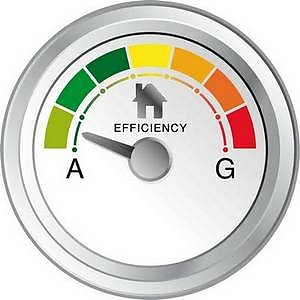I am moving to a new home. And since I live at my parents, that means I will have to buy a lot of new stuff: A bed, new furniture, a washing machine, you name it. Of course, the most elementary thing to have in any household would be the refrigerator. Like any student with a limited budget, my first idea was to look for a cheap second-hand fridge. When I told my thesis supervisor about this, he told me that the smarter thing to do would be to get a new one. One which is labeled A+++ and no less than that ("since A+ is the new C", I remember him saying). The "extra" investment over a less energy-friendly model, he claims, is well worth it because you will earn it back over the lifetime of this essential kitchen appliance.
"Well, okay", I thought. "I guess that makes sense..." So I went to the store to check out the latest models with A+++ signs. And as expected, they were pretty expensive. I think the cheapest A+++ from a decent brand (some brands you just don't buy, whatever the price) is around €530,- with a rated annual energy use of 149 kWh. Way out of my budget, so I checked out Marktplaats (THE Dutch second-hand trading place) instead. There was a nice Siemens fridge for sale, only 2 years old and €100,-. I checked out the details, an A+ model with an annual energy use of 285 kWh per year. Naturally, with my supervisor's comment in the back of my mind, I do a quick calculation assuming a 7 year lifetime for a new fridge, a 5 year lifetime for the second-hand (since it is two years old) and an average energy price of 22 cents per kWh.
New:
- Investment cost per year = 530 / 7 = € 75.70
- Energy cost per year = 149 kWh * 0,22 = € 32.80
- Total yearly cost = € 108.50
2nd hand fridge
- Investment cost per year = 100 / 5 = € 20
- Energy cost per year = 285 kWh * 0,22 = € 62.7
- Total yearly cost = € 82.70
It looks like the second hand is the cheaper option, but the price difference for each year is not as much as I'd expected. So what if, hypothetically, I would have bought a 10 year old fridge from a fellow student for, say, a crate of beer (€15 for Heineken). Let's hope it will survive for two years and see what it will cost me on the "long term". I'm going to assume a yearly use of 380 kWh per year[1]
- Investment cost per year = 15 /2 = € 7.50
- Energy cost per year = 380 kWh * 0,22 = € 83.60
- Total yearly cost = € 88.60
Well, look at that. A yearly cost that is higher than the more energy efficient second hand option, and on top of that I will have to buy myself a new fridge in two years. And even if it does hold out for 5 or even 7 years, the cost of energy alone is more than the total yearly cost of the €100 fridge. That cheap bargain doesn't look so cheap after all, does it?
So what is the morale of this story? The improvement in energy efficiency for refrigerators has been quite large during the past years. So if you currently own an old fridge, it might be a good idea to look up what it costs you yearly, compared to buying a new one. Chances are that would probably do your wallet and the environment a favor by buying a new one. However, does the same rule count in 10 years from now? That depends, but I doubt it. Where the increase in energy efficiency has been impressive in the past few years, it will become harder every year to increase it even further. At some point a limit will be reached. Perhaps the same efficiency increase can still be reached percentage wise, however 10% of a lot is a bigger net save than 10% from a device which is already quite efficient. So your gain in terms of hard cash will probably be a lot less. But that is then. This is now. So change those fridgies, people!
P.s. in case you are now wondering what kind of fridge I got... I settled for a new A+ rated Samsung model, because it had a cool metallic color, it was on sale and came out as best choice by the consumer's association. Of course, as a scientist, I should know better than to blindly follow their advice... I know... But hey, my budget was quite restricted and so was my time... which directly points out a flaw when one assumes that people will always buy the "most rational" choice. But that is brainfood for another time...
[1] http://www.milieucentraal.nl/energie-besparen/apparaten-en-verlichting/huishoudelijke-apparaten/koelkasten-en-vriezers/
